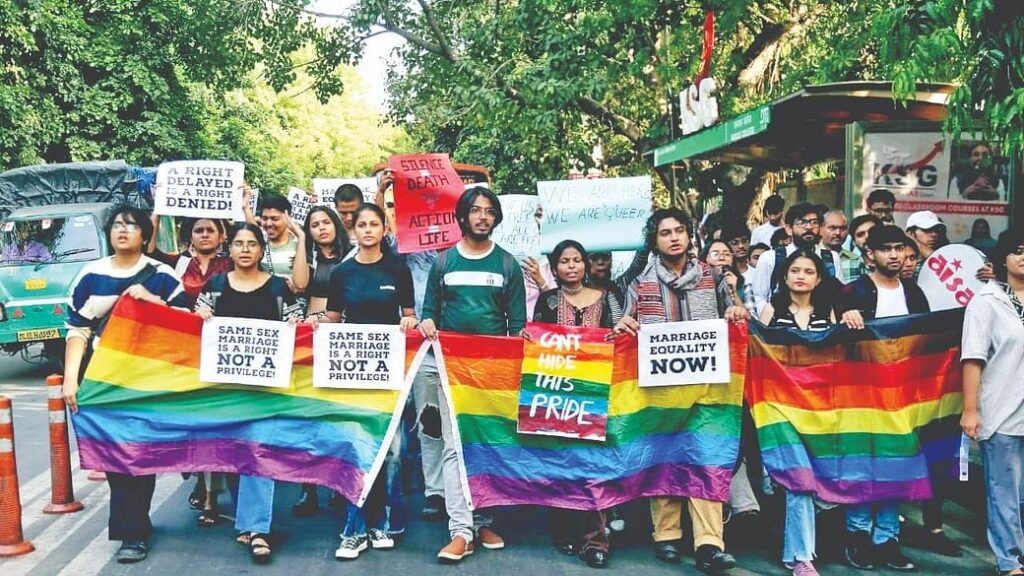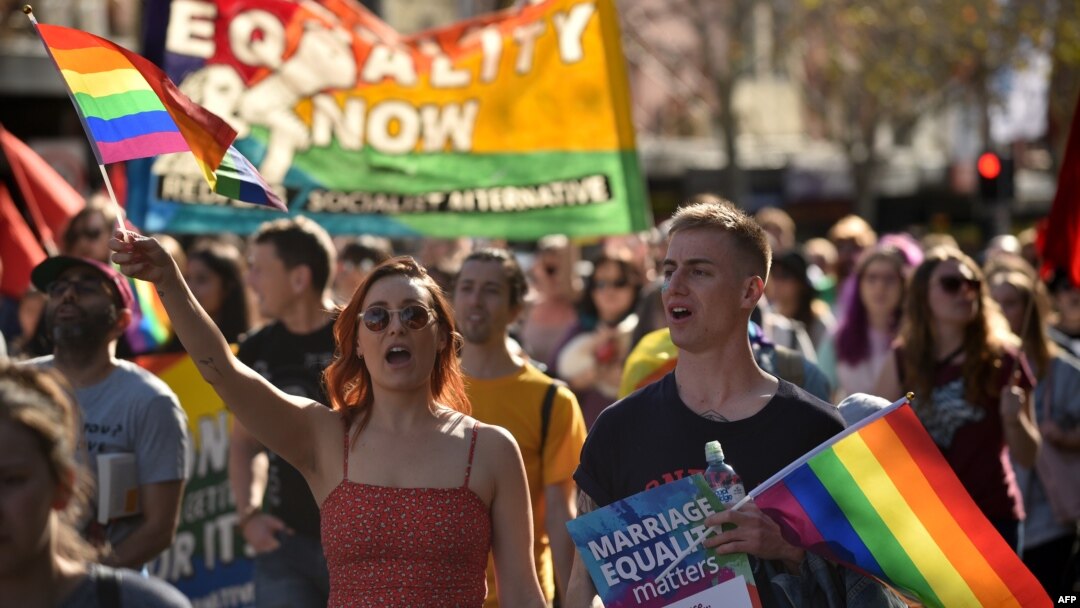An explanation of the Supreme Court’s ruling banning same-sex unions.
What did the petitioners ask for? Why did the court not allow same-sex marriages to be legally consummated under the Special Marriage Act? Will the legislature be willing to pass legislation to sanction same-sex unions?
Up until this point: On October 17, the Supreme Court’s Constitution Bench denied the legalization of same-sex unions and tasked Parliament with enacting relevant legislation. Marriage is not a basic right, the bench ruled, and the court cannot get involved. While all five judges agreed that it is time to put an end to discrimination against same-sex relationships,

Members of the Student Federation of India and LGBTQIA+ activists demonstrated against the Supreme Court’s ruling on same-sex marriage on October 18, 2023, in New Delhi. They brandished placards and chanted slogans. Image from-image search
they were unable to come to an agreement on whether to recognize same-sex relationships as legal entities under the “Civil Union.” Legislative action is required to acquire such recognition.Up until this point: On October 17, the Supreme Court’s Constitution Bench denied the legalization of same-sex unions and tasked Parliament with enacting relevant legislation. The
The petitioners asked the court to interpret the Special Marriage Act (SMA), 1954, which permits civil marriage for persons who are prohibited from doing so by their personal laws, to include same-sex couples, thereby allowing them to wed. However, the SMA contends that Articles 14, 15, 19, 21, and 25 have been broken by forbidding same-sex,
gender non-conforming, LGBTQIA+ couples from getting married. As a result, it wants to replace the terms “husband” and “wife” with gender-neutral terminology like “party” or “spouse.”









